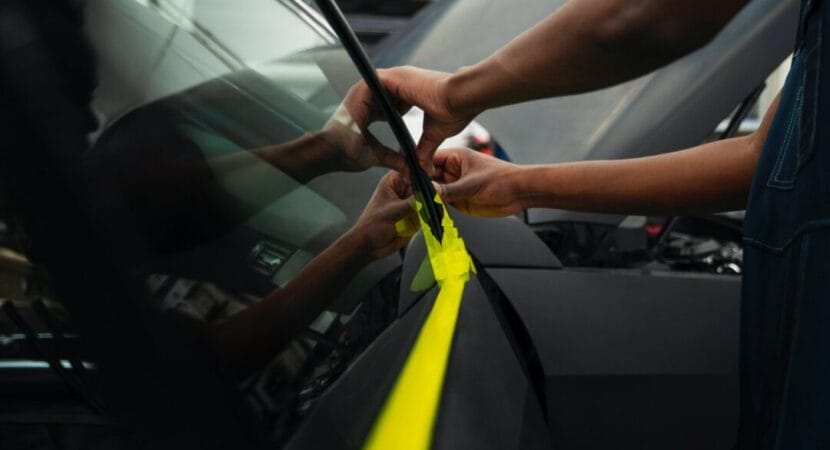
New Hyundai film promises to eliminate the heat from vehicles parked in the sun. Nanotechnology cooling film reduces temperature by up to 22°C. Check out all the details of this innovation!
One of drivers' biggest nightmares, at least in Brazil, is parking their car in the sun and having to face that stuffy feeling when getting back into the vehicle. It was with this in mind that Hyundai developed its new cooling film with transparent nanotechnology that promises to considerably reduce the temperature in these cases.
New Hyundai film will hit the market soon
The new nanotechnology cooling film, which was named Nano Cooling Film (cooling film with nanotechnology), will be applied to the vehicle's windows. According to the company, internal temperatures could be reduced by more than 22° C.
Announced last year, Hyundai's new film blocks external thermal energy while allowing internal heat to escape. The brand tested the product's effectiveness by applying the film to 70 vehicles in Lahore, Pakistan. In the region, temperatures reach an incredible 50 °C and curtains are prohibited for safety reasons.
The result of testing Hyundai's new film was a reduction in the temperature in the driver's seat by 10,98 °C compared to conventional color film.
The thermometers still registered 12,33 °C less compared to the same vehicle without tinted windows. On surfaces inside the car, the film reduced the incident surface temperature by 15,38 °C compared to a vehicle with conventional film and 22 °C compared to one without film.
The nanotechnology cooling film is in the last phase of tests. Hyundai plans to begin mass production and sales in the near future.
Other initiatives similar to the Hyundai film
In addition to the new nanotechnology cooling film, an Israeli startup called SolCold has developed a technology capable of using solar energy to cool cars in mid-2022.
The technology is a film-shaped coating capable of using light captured by the sun to maintain the car's temperature. The company's refrigeration technology uses photons of light that can react to the surface and cause them to come out with more energy than they are capable of encountering.
This radiates energy more strongly, which transforms the energy loss into a refrigeration process. The process is not exactly new and is called anti-Stokes fluorescence, but it can only happen naturally under specific conditions.
The test was carried out in a Volkswagen Polo and received funding from the German brand's research center.
New Brazilian rules for the use of automotive films
popularly called insulfilm, automotive safety film is produced with polyester and a subtle layer of metal.
When applied to vehicle windows, it becomes practically imperceptible, providing protection against theft and theft, blocking solar rays and ultraviolet radiation, thermal comfort and an improved aesthetic appearance. Many Brazilians choose this feature because it gives the vehicle a more modern and bold look.
O The use of film on the windshield is permitted by law, as long as it complies with established regulations. This permission is a substantial benefit, as it makes it possible to maintain comfort and privacy without violating any legal regulations.
One of the most significant changes in the recent regulation of sun protection films is the absolute ban on bubbles on front windows and windshields. This measure aims to ensure the safety of drivers, avoiding any compromise in visibility while driving.












